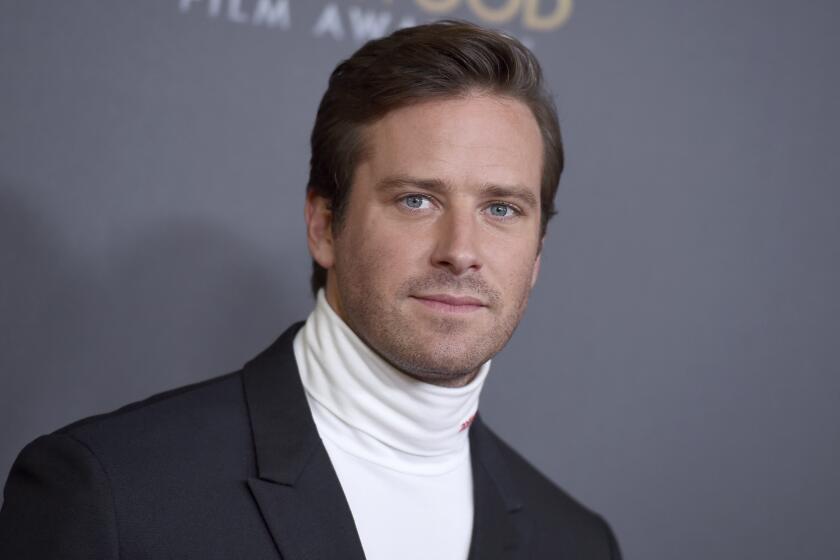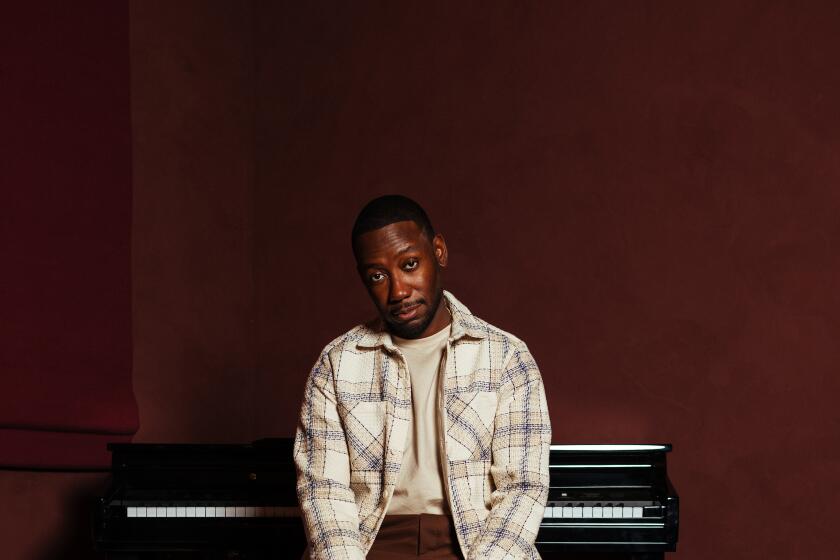Presenting two Linda Lovelace stories in one biopic
Depending on when she wrote and talked about her life, Linda Lovelace had two very different perspectives about her work on “Deep Throat” and in adult cinema. She initially said she performed willingly and embraced becoming an icon of sexual freedom, then insisted she was forced to make sex films at gunpoint and became a leader in the anti-pornography movement.
Filmmakers Rob Epstein and Jeffrey Friedman had to choose which contradictory point of view to employ for their new drama “Lovelace.”
So they chose both.
Opening Friday in limited release and on video-on-demand channels, “Lovelace” is essentially twin versions of the same story. The film starts with the rebellious adolescence of Linda Susan Boreman (Amanda Seyfried), who eventually marries Chuck Traynor (Peter Sarsgaard). At Traynor’s urging, Boreman starts acting in short adult films, or loops, before her oral sex skills lead her to star under the stage name Linda Lovelace in 1972’s “Deep Throat.”
PHOTOS: Hollywood backlot moments
The film became a commercial blockbuster, a $50,000 production that became a commercial hit, although no exact box-office figures are available owing to the film’s genre. “Deep Throat” brought adult movies into the popular culture and was seen as an outward and visible sign of the sexual revolution, a hard-core production that received mainstream media attention.
With a script by playwright Andy Bellin (“Trust”), “Lovelace” covers the same series of events twice, with the second half of the movie hewing closely to Lovelace’s recantations, made primarily in her 1980 memoir “Ordeal.” The cast includes Hank Azaria as “Deep Throat” director Gerard Damiano, Bobby Cannavale as producer Butchie Peraino and Chris Noth as a fictional financier named Anthony Romano.
In the latter part of “Lovelace,” Traynor is depicted as a thug who beat his wife and forced his unwilling partner to appear in adult films, with Lovelace’s parents (her mother is played by an unrecognizable Sharon Stone) providing no protection or guidance.
PHOTOS: Celebrities by The Times
Seyfried, best known for playing innocent characters like Cosette in “Les Misérables” and Sophie in “Mamma Mia!” plays the title role with full-frontal abandon.
“She was real and I needed to get really close to her,” Seyfried said. “I’d never portrayed anybody real before, and I don’t think I’ve truly released her yet.” As for the film’s nudity, the 27-year-old actress said, “I know we’re in America but I don’t think our naked bodies are something we should be ashamed of.”
Best known as the documentarians who made “Common Threads: Stories From the Quilt” and “The Celluloid Closet,” Epstein and Friedman acknowledge that Lovelace, who remarried and was Linda Marchiano before her death following an auto accident in 2002, was an unreliable narrator. Their film does not mention her sex scenes in a bestiality short that preceded “Deep Throat” but was made while she was with Traynor.
Though both perspectives of Marchiano’s life receive roughly the same screen time, “Lovelace” ultimately leaves no question that the star of “Deep Throat” was a victim.
“There are probably elements of both accounts of her life that have some truth to them,” Friedman said. “But we take Linda at her word.” The filmmakers doubt that Marchiano was the true author of her first two autobiographies she wrote about her adult film work, “Inside Linda Lovelace” and “The Intimate Diary of Linda Lovelace.”
“That’s an element that interests us,” said Friedman, who with Epstein directed the Allen Ginsberg drama “Howl” in 2010. “We receive all this storytelling — from television, radio, newspapers, magazines, books, the Internet — and we think we really know how people have lived their lives. But there are usually so many more levels and layers to it.”
The filmmakers ultimately found that the actress’ campaign against pornography derailed the plot — she said, “When you see the movie ‘Deep Throat,’ you are watching me being raped” — and the directors abandoned depictions of her advocacy work, completely excising filmed scenes with Gloria Steinem (played by Sarah Jessica Parker).
“It took us into the realm of miniseries,” Epstein said. “If we were going to go into that chapter, we would have to really go into that chapter.” Added Friedman: “And she did not destroy the porno business.”
To fill its place, Epstein and Friedman reassembled the production for a reshoot where Marchiano is reconciled with her parents, partially in the hopes of giving “Lovelace” a slightly upbeat ending. “It’s more of an emotional resolution rather than an intellectual one.”
The filmmakers said they had to make only tiny trims to one sex scene, where Traynor is teaching his wife how to perform oral sex, to avoid an NC-17 rating. The film is rated R for “strong sexual content, nudity, language, drug use and some domestic violence.”
Reviews for the film have been mostly positive but not raves. In some ways, “Lovelace” is a perfect model for a video-on-demand release because the film’s subject matter and cast can help separate it from the hundreds of movies available for streaming on the Internet or on cable and satellite TV VOD channels.
“The most superficial part of me says, ‘Everybody wants to see it on the big screen,’ ” Friedman said. “But the world is changing.”
Just as Marchiano repeatedly encountered people who doubted her forced-at-gunpoint story — the film includes the actress being confronted by disbelievers when she appeared on “The Phil Donahue Show” — “Lovelace” is eliciting some of the same reactions from moviegoers in festival and early screenings.
Seyfried said she too was initially skeptical.
“I had a hard time in the beginning when I first started reading ‘Ordeal.’ I’m a very cynical person and I have a hard time trusting people,” Seyfried said. “But my job is to abandon all cynicism and jump in head-first.”
The more she researched the role, the more Seyfried believed “Lovelace” could help change the conventional wisdom about the woman she was playing.
“What she told me in her writings had to be true,” Seyfried said. “How are you going to embody somebody if you don’t believe them?”
More to Read
Only good movies
Get the Indie Focus newsletter, Mark Olsen's weekly guide to the world of cinema.
You may occasionally receive promotional content from the Los Angeles Times.











